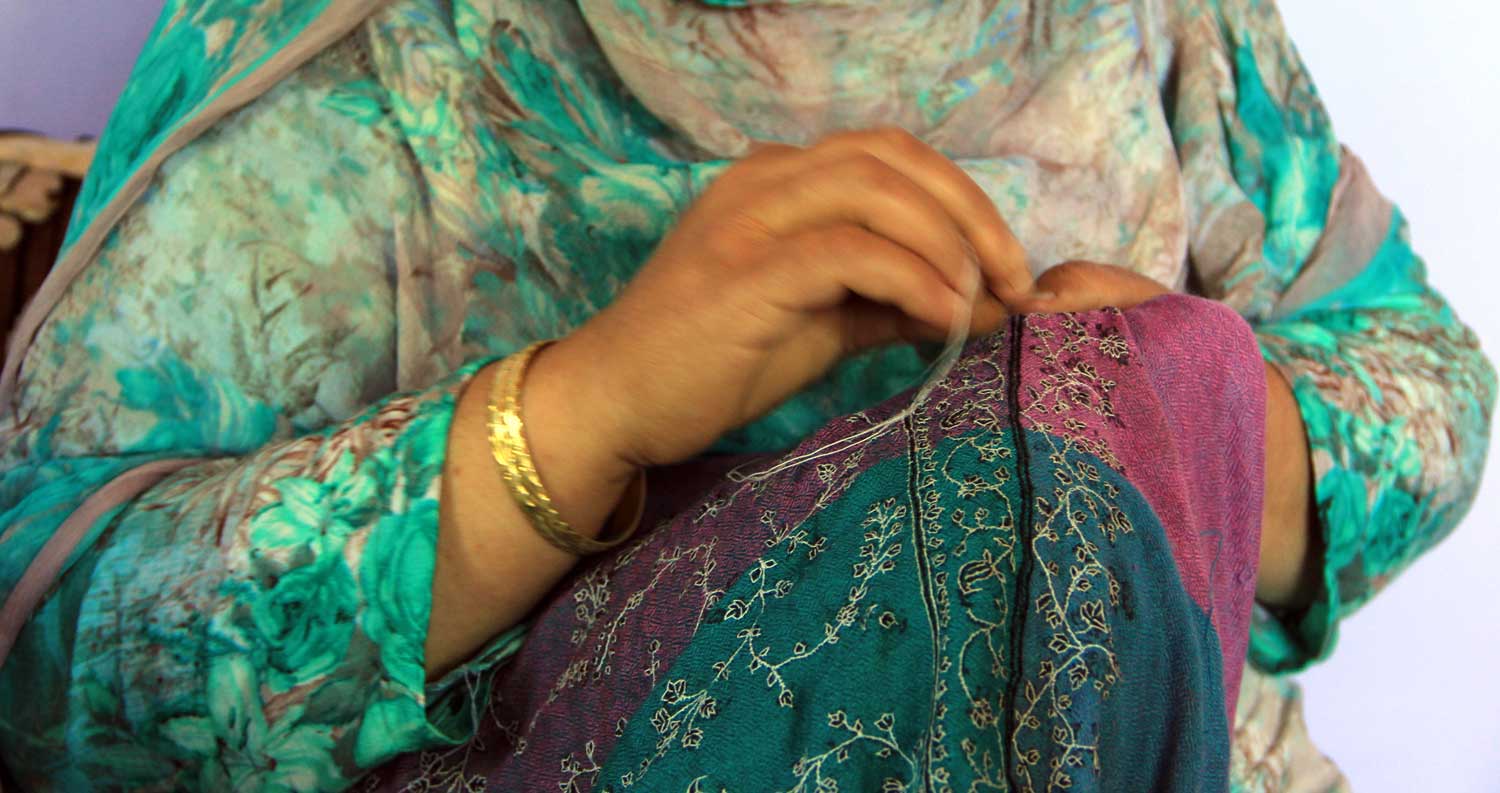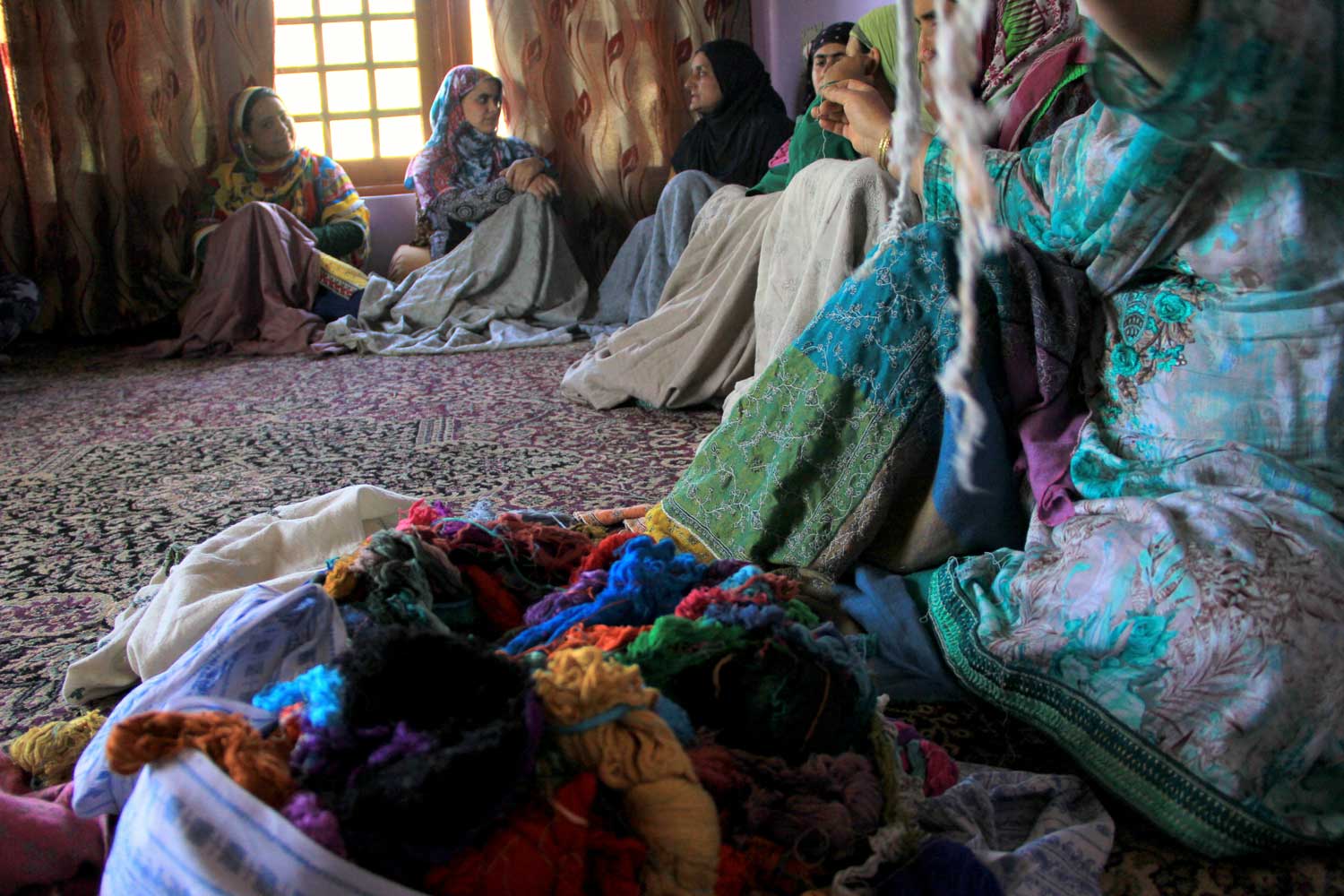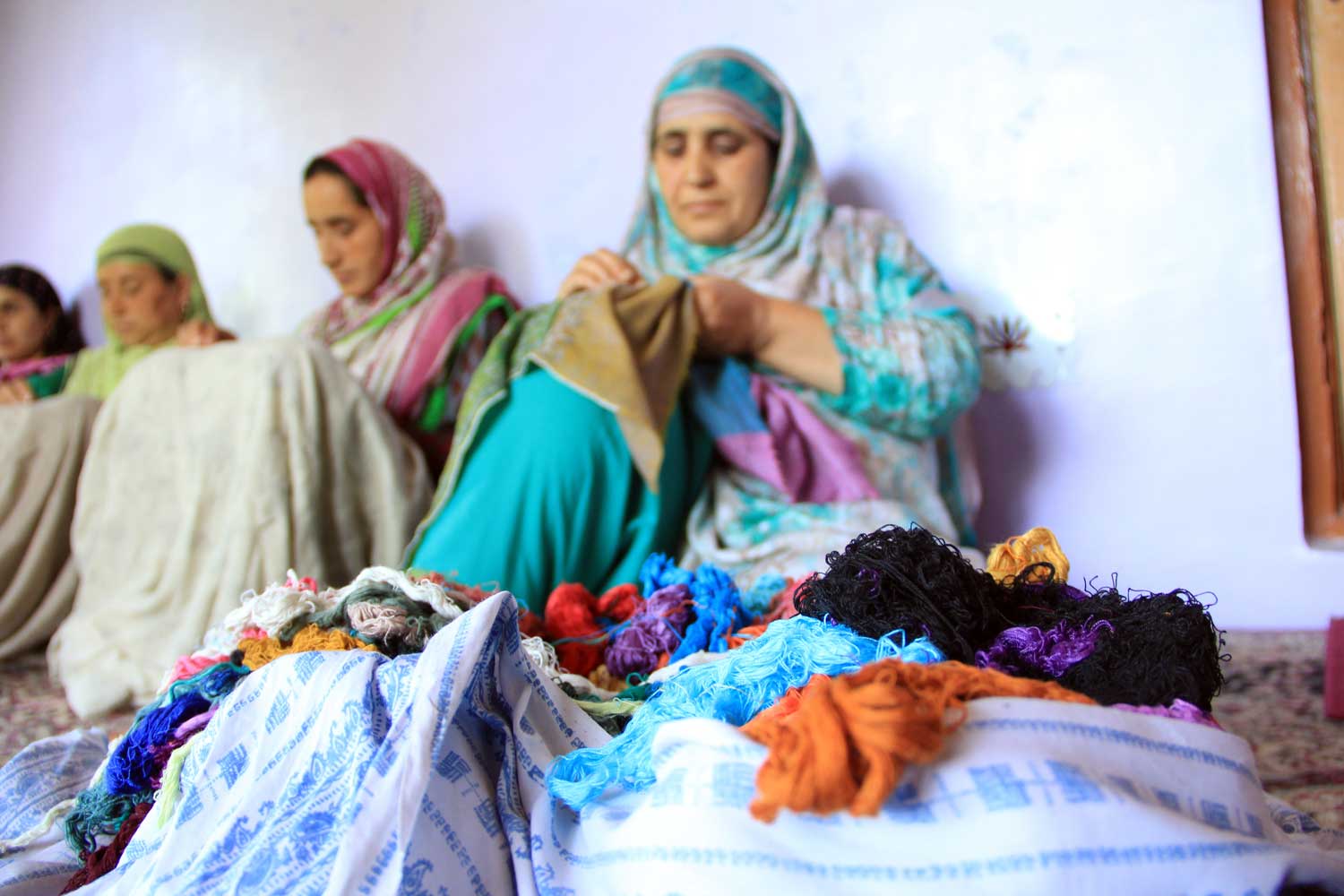Her life turned topsy-turvy one year after her marriage when everything went up in smoke. But the young Rashida Bano fought back and marketed her art to emerge a master in her line of work.
When the raging blaze erupted in pictorial Bonizal hamlet of Ganderbal in 1998, a young woman distraughtly saw her house, and newly started chicken farmhouse, rising up in flames. The blaze smoked everything, except her will to fight back and recreate a better life. Having learned many crafts—Ari, Tilla, Sozni—from her school days, Rashida Bano, now 37, eventually got back on her feet and emerged an inspiration.
Years before, these arts had fascinated her to an extent that she went after them passionately. She remembers picking up the needle for the first time in her pre-teenage days. As a trainee, she used to sit next to her artist uncle to pick up the threads of these arts. As time passed, her interest grew so much that she opted out of her school to focus entirely on honing her skills. She was only an eighth grader when she quit schooling.

The decision didn’t prove terrible to Bano, whose single-minded devotion to Kashmir Arts flourished with time. But before she could have reaped big benefits, she was married, and got weighed down by the expectation a woman in this part of the world is laden with.
Soon after her wedding, Bano lost the compass of her passionate journey. She was no longer feeling for it, as the new life was hardly leaving any time to pursue it further. Many other things had become her top priorities.
Everything was going smooth, until one year after the flames of her marriage erupted and turned her domestic life into ashes. While staring at the hard reality, she had to step up to help her family to overcome the sudden income shock.
With that cause, she threw open a dairy farm. But sadly, it didn’t take off, leaving her heartbroken. The failure escalated the misery in her already stressful life. For a while, nothing seemed to work. Although failure haunted her, but she still kept on exploring all the options, until she decided to return to her passion.

Bano began availing work from a local master in her immediate neighbourhood. It didn’t fetch her a good amount, but it was enough to stabilize her family’s financial conditions. As she kept slogging, the mounting stress started taking toll on her health. She suffered from partial blindness and temporary memory loss for a few months. However, she recollected herself with a dint of her courage; and soon, she found good reason to be the master of her own works.
Those days, she would work for a local master at his centre. While busy working at the centre one day, she heard her male coworkers backbiting about a lady who had visited their centre and left in a huff. The ‘bad talk’ being done in a very inappropriate manner made her insecure in that company. How some men could harass women even in their minds left her numb. She quitted.
By then, she had mustered enough courage to start her own venture. After exploring all the parameters of the business – from collecting raw material to block printing and to explore the market – she started her own centre. With her start-up, things began changing, and for good.

The shawl that used to fetch her Rs 15,000 under her master began fetching her trainees Rs 40,000. She wanted to give full benefit to her workforce and wanted to make sure they don’t get exploited, like her. With this belief, her caravan of artists kept growing, and over the period of time, she trained over 80 females and three differently-abled males.
But she strictly wants to keep it a women-specific venture with the aim to boost women empowerment. Also, as a full-fledged mentor, she keeps advising her workforce to use their hard-earned money in a productive way.
Today, Bano has emerged as a role model in her own right in her village. In fact, twenty five years after picking up the needle for the first time to stitch her passion, she has become the first major woman employer in her village.

In every society, she believes, women need to work on themselves, be self-sufficient and independent to stand up in a male-dominant society.
To all those women who feel like they are on the verge of collapse at certain stages in their lives, Bano truly stands to be an inspiration. They can fight back and recreate a beautiful journey like her.








